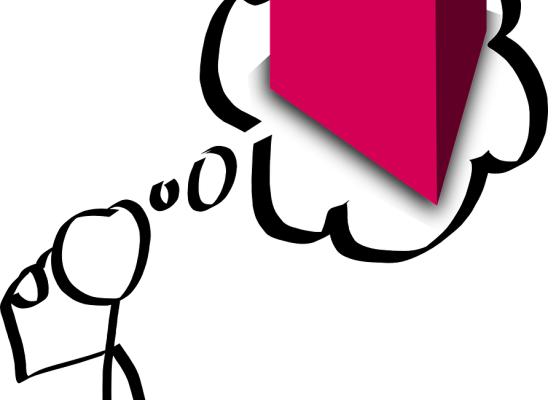What Therapy for Hair Pulling Really Looks Like: Common Approaches To Know

Online test
Find out the severity of your symptoms with this free online test
Therapy is generally considered the first-line treatment for trichotillomania, commonly referred to as hair pulling or trich. The good news is, there are evidence-based therapies that can help you understand your triggers, reduce pulling, and regain a sense of control. But take a spin around the internet and you’re bound to find countless ways of dealing with trich, some scientifically supported, some not so much.
But how do you know which one might be right for you? And what can you expect if you decide to try therapy?
Let’s take a closer look. And note, for the purpose of this blog, we’ll stick to some of the most commonly used evidence-based approaches, meaning they’re supported with scientific data.
Common Approaches to Therapy
First, it’s important to know that therapy is not one-size-fits-all. Just what therapy might look like for you can be determined in part by what approach(es) a therapist chooses to use as well as your individual needs and preferences. For example, you might really dislike a lot of “talk therapy” but you enjoy using “doing” as with more behavior-based strategies.
Some of the most common evidence-based approaches include:
- Habit Reversal Training (HRT)
- Cognitive Behavioral Therapy (CBT)
- Acceptance and Commitment Therapy (ACT)
Habit Reversal Training (HRT)
Often referred to as the “gold standard”, Habit Reversal Training (HRT) is one of the most widely studied and effective treatments for trich. It is a specialized form of cognitive behavioral therapy (CBT) that focuses primarily on the hair pulling behavior rather than underlying emotions associated with the behavior. Developed specifically for repetitive habitual behaviors like hair pulling, the goal of HRT is to break the cycle of pulling via a step-by-step process that gradually replaces hair pulling with healthier behaviors.
Cognitive Behavioral Therapy (CBT)
Cognitive Behavioral Therapy (CBT) is based on the idea that our thoughts, feelings, and behaviors are all connected and changing negative thought patterns can positively impact behavior choices and coping.
CBT has extensive scientific support as an effective treatment for body-focused repetitive behaviors (BFRBs) like trich. For hair pulling, the focus of CBT is often to identify and restructure negative thought patterns that can fuel the urge to pull. Addressing the patterns of thinking that drive hair pulling can help you learn healthier ways of coping.
Acceptance and Commitment Therapy (ACT)
The idea of acceptance can feel counter intuitive and at odds with the goal of reducing hair pulling. After all, acceptance is often thought of as resignation or of being powerless to do anything. It’s so much more.
Acceptance is about choice. It allows you to see things as they are and make choices that are right for you. In the context of treatment for hair pulling, practicing acceptance taps into the power of not fighting urges to pull, instead allowing them to be present but without judgment and choosing how to respond.
Acceptance and Commitment Therapy (ACT) is a specialized type of therapy that focuses on learning strategies for living with your urges without them controlling your actions. ACT has been shown to be an effective approach to treating trich.
The Power of Combinations
Because treatment isn’t one-size-fits-all, therapists often combine elements of different approaches to meet a person’s individual needs. Combined approaches have been shown to be very effective in addressing both behavioral and cognitive aspects of trich for more targeted, individualized treatment.
Just what combos seem to work best? A recent study reviewed the research on various approaches to treating trich. Their findings suggest that CBT has a high rate of efficacy, especially when combined with HRT.
ACT seems to be helpful in treating trich, especially when combined with HRT. A 2022 study found that an online therapy program combining elements of both ACT and HRT was effective and treatment gains were maintained over time. This finding highlights another important aspect of therapy – online delivery.
Online therapy has been consistently shown to be as effective as in-office therapy for many mental health issues. Online services remove barriers like accessibility and scheduling and make accessing care more convenient and comfortable.
Moving Forward
Regardless of the specific approach, therapy has proven to be a cornerstone of treatment for hair pulling. What your particular treatment experience will look like depends on your unique preferences and needs. A therapist experienced in treating BFRBs like trich can help you choose the therapeutic and supportive strategies that are just right for you.
At Trichstop, we have a team of expert therapists ready to help you take the next step in your healing journey. Whether you’re just beginning that process or you’ve tried therapy before, our therapists have the experience and knowledge to help you find solutions that can help you move towards recovery. You don’t have to do this alone. When you’re ready, the Trichstop team is here to help.
References
1. Nina Domínguez, L., Imbernón-Moya, A., Saceda-Corralo, D., & Vañó-Galván, S. (2025). [Translated article] Trichotillomania Treatment Update. Actas dermo-sifiliograficas, 116(2), T152–T158. https://pubmed.ncbi.nlm.nih.gov/39557288/
2. Asplund, M., Lenhard, F., Andersson, E., & Ivanov, V. (2022). Internet-delivered acceptance-based behavior therapy for trichotillomania and skin-picking disorder in a psychiatric setting: A feasibility trial. Internet Interventions, 30. Retrieved from https://www.sciencedirect.com/science/article/pii/S221478292200080X?via%3Dihub
3. Fernandez, E., Woldgabreal, Y., Day, A., Pham, T., Gleich, B., & Aboujaoude, E. (2021). Live psychotherapy by video versus in‐person: A meta‐analysis of efficacy and its relationship to types and targets of treatment. Clinical Psychology & Psychotherapy, 28(6), 1535–1549. https://onlinelibrary.wiley.com/doi/10.1002/cpp.2594
Online test
Find out the severity of your symptoms with this free online test
Start your journey with TrichStop
Take control of your life and find freedom from hair pulling through professional therapy and evidence-based behavioral techniques.
Start Now



